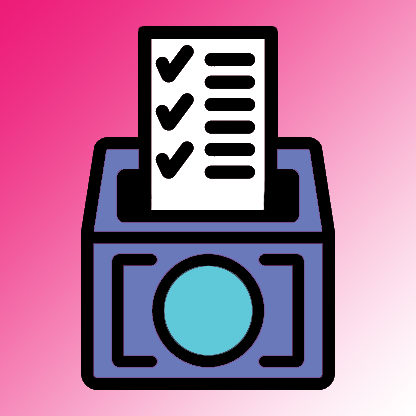Is 2020 the year voting registration goes digital?

Posted in 2020 The Gnovis Blog | Tagged digital, voter behavior, voting
By Anna Hoffman
Few things about this election feel familiar, but as always there is a new batch of voters turning 18 and participating in their first presidential election. The members of this latest addition to the electorate were born in 2002, unable to remember a time before computers were ubiquitous. This generation is obviously shaped by their connection to the internet age, and within a few more presidential elections, these swaths of internet-raised voters will no longer be a novel concept for the electorate. In a year of Zoom school, Zoom hangouts, Zoom doctors appointments, Zoom dates, and pretty much everything else done at a distance, it makes sense that online voter registration would hit a surge.
While many of us are so used to this status quo it seems hardly worth writing about, this election has given us reminders that this pivot to virtual political engagement is still relatively new. For the 2008 presidential election, only two states had online voter registration. That’s one presidency ago (as long as it’s felt since). Less than one decade later, 40 states now allow for online voter registration. This pivot to online voter registration has seen a surge in youth voters, bringing in the digital generation and young voters that unfortunately rarely show up to the polls.
Tik Tok influencers have leveraged their tens of thousands of followers to encourage others to vote and get involved in this year’s election. Facebook set a goal of getting 4 million people registered to vote, pinning voting information on Facebook and Instagram and attempting to save face from the 2016 election debacle by making political ads more clearly labeled. Not to be topped by the other tech giants, Google built a tool where anyone Googling about voting instructions would be served location-specific information about how they can vote in their state.
However, 10 states still don’t allow for online voter registration, and those who do have flawed systems. Issues with Washington, D.C.’s voter registration app caused some to miss registration for the 2020 primaries. But online voter registration isn’t just table stakes for those who prefer online shopping or other conveniences of the digital age: it’s a necessity for inclusivity in democracy. A Pew Charitable Trusts report found that online voter registration allows for multilingual access, accessibility features for those with disabilities, options for citizens without IDs, cheaper costs to local governments, and stronger safeguards against fraud.
The more online voter registration becomes a norm in this country, the better it will be in creating a system that brings in all voters. In most democracies across the world, the government takes the responsibility for getting all voting-eligible citizens registered. In a report from the Brennan Center for Justice, they found that only five democracies in the world (Bahamas, Belize, Burundi, Mexico, and the U.S.) place the burden of voter registration solely on their citizens. Any hurdle for citizens to engage with our voting system is against the principles of representative democracy. Though this problem is just one of many, it’s one simple improvement states can make now to get us closer to where we should be. Not to mention—the cute little stickers on our Instagram stories reminding people to vote are pretty darn cute, virtue-signaling be damned.
